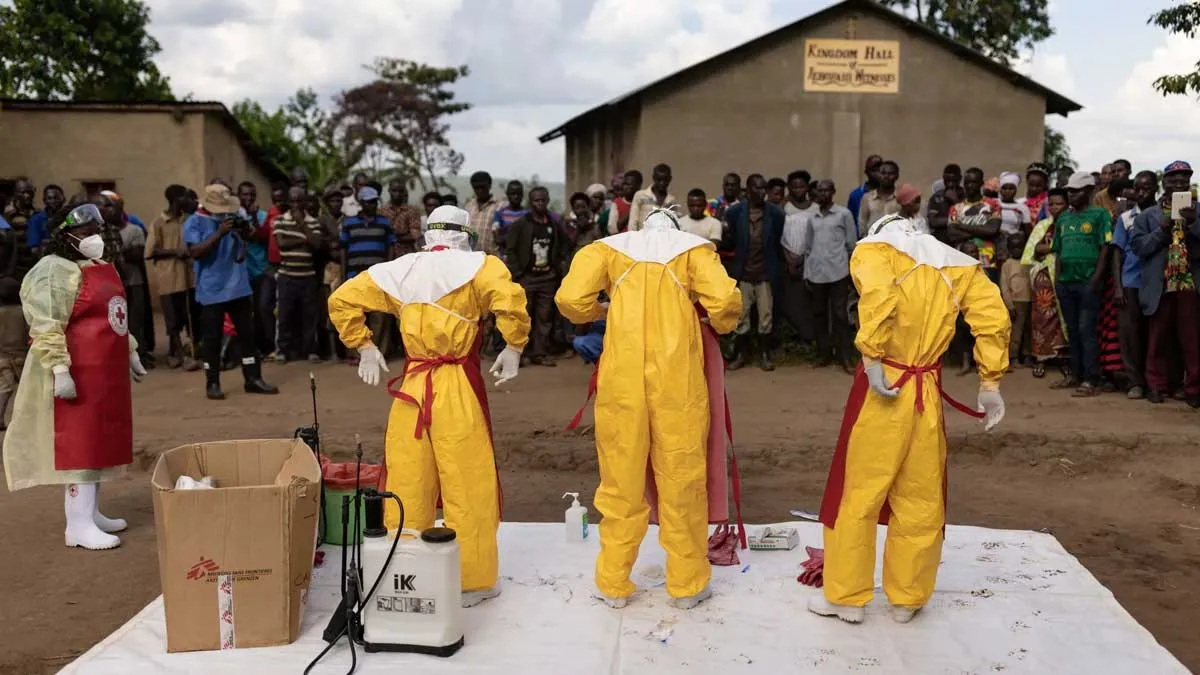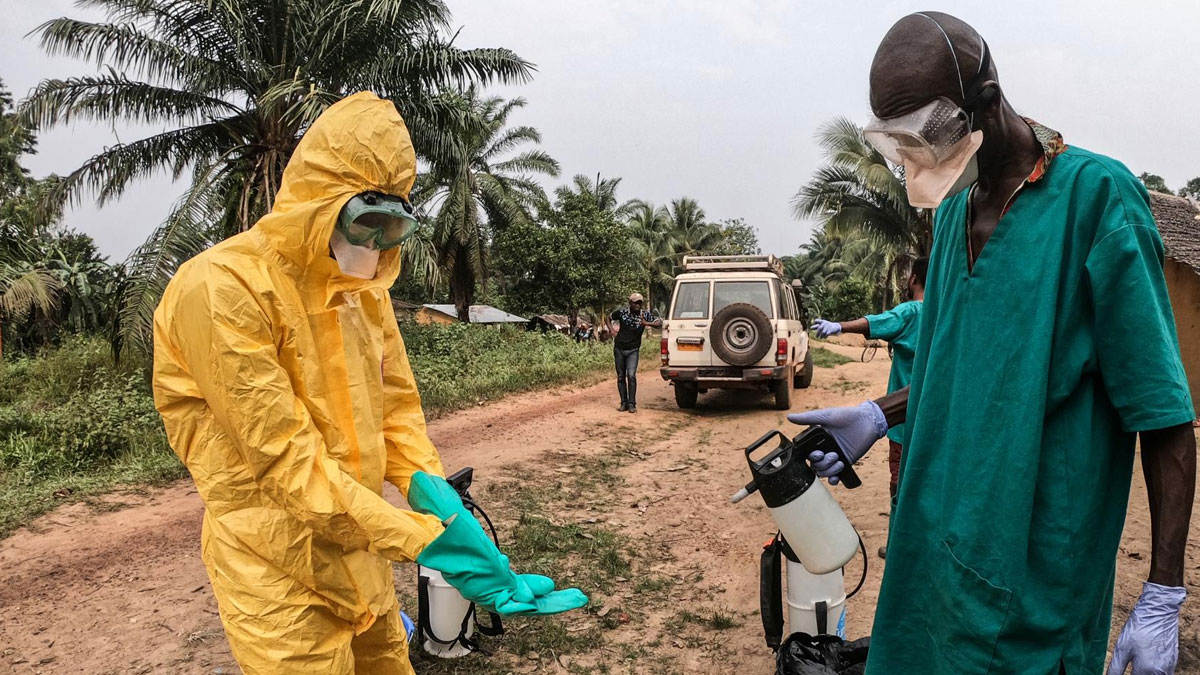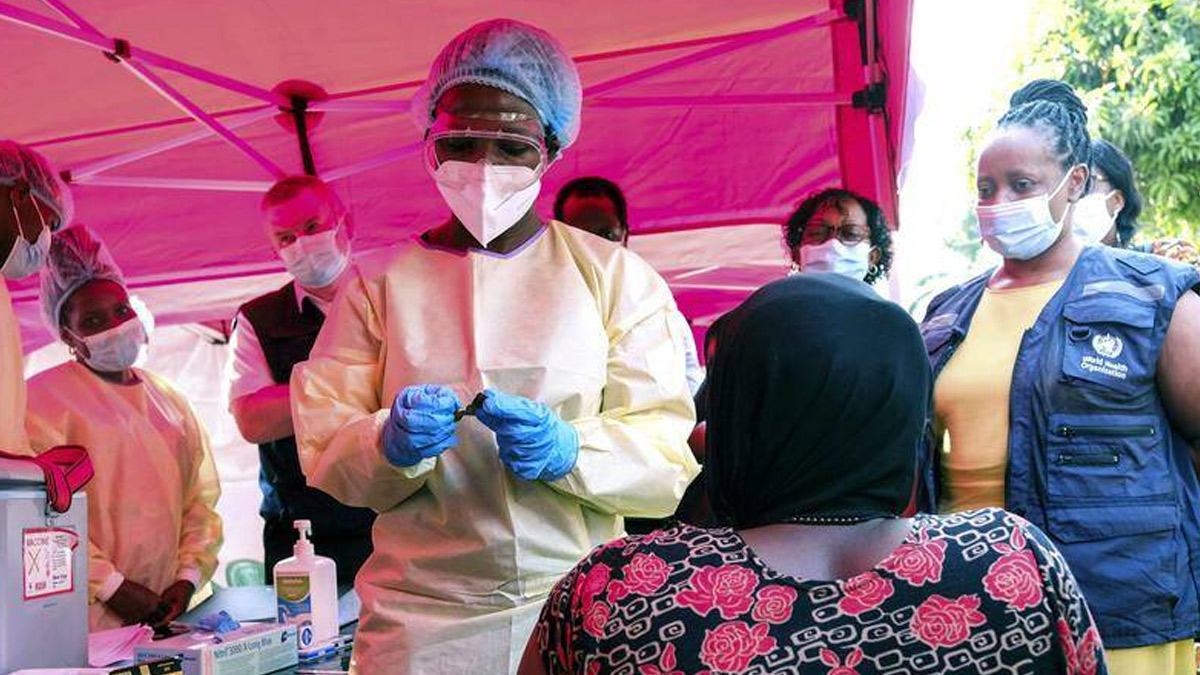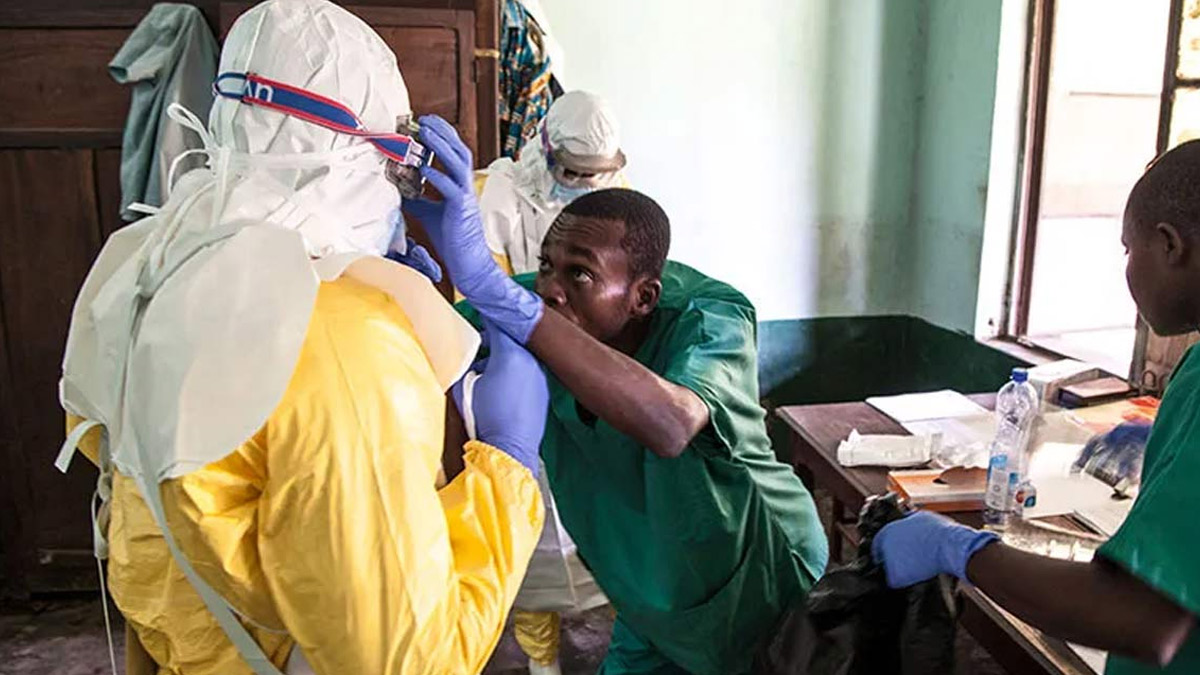
Uganda is facing renewed concerns over its Ebola outbreak after a second confirmed death from the virus. The World Health Organization (WHO) reported that a 4-year-old child succumbed to the deadly disease, raising fears over the country’s ability to contain its spread. The child had been admitted to the main referral hospital in Kampala, the capital city, and tragically passed away within three days. Authorities are now intensifying efforts to trace the origin of the infection and prevent further transmission.
Table of Content:-
Tracing the Source: A Race Against Time
The latest fatality has puzzled health officials, as the exact source of infection remains unknown. The outbreak, which was officially declared on January 30, initially claimed the life of a male nurse. He had sought medical care at multiple facilities and even consulted a traditional healer before succumbing to the virus in Kampala.

Health workers had hoped that early intervention would curb the spread, especially after successfully treating and discharging eight patients who had been in close contact with the nurse. However, the latest case suggests that the virus may still be spreading undetected.
Challenges in Controlling the Outbreak
Containing an Ebola outbreak requires rigorous surveillance, rapid contact tracing, and timely medical intervention. WHO officials are collaborating with Ugandan health authorities to strengthen these measures. However, the resurgence of Ebola cases raises concerns over whether current efforts are sufficient.

One of the biggest hurdles in controlling the outbreak is the absence of an approved vaccine for the Sudan strain of Ebola, which is responsible for the current infections. Unlike the Zaire strain, which has effective vaccines available, the Sudan strain remains a formidable challenge for researchers and healthcare professionals.
Also Read: Deadly ‘Crying’ Disease Spreads Rapidly In Congo, Claims Lives Within Hours—Doctors Urge Vigilance
Uganda’s Response to the Crisis
Ugandan health authorities have ramped up their screening procedures at border crossings, monitoring over 20,000 travelers daily to prevent cross-border transmission. The WHO has allocated at least $3 million to bolster the country's Ebola response. However, concerns remain over the availability of adequate funding, especially following the U.S. government’s decision to cut 60% of USAID foreign aid contracts. This reduction in financial support could hinder essential response efforts, including medical supplies, personnel training, and community outreach programs.

Understanding Ebola: A Deadly Virus
Ebola is a severe viral hemorrhagic fever caused by different strains of the Ebolavirus. It primarily spreads through direct contact with bodily fluids of infected individuals, contaminated surfaces, or infected animals such as bats and nonhuman primates. The disease begins with flu-like symptoms, including fever, muscle pain, and fatigue, but can quickly escalate to severe vomiting, internal bleeding, and neurological complications.
Also Read: Listeria Outbreak In US Due To Frozen Shakes, Report On Death Toll And Hospitalisation
While past outbreaks have been largely confined to Africa, the global community remains on high alert due to Ebola’s potential for rapid transmission. Countries with close travel ties to Uganda have been urged to heighten their surveillance and preparedness measures.
Bottomline
With the confirmation of a second Ebola-related death, Uganda is at a critical juncture in its battle against the virus. Health officials are doubling down on efforts to contain the outbreak, but challenges such as limited vaccines and reduced foreign aid funding pose significant obstacles. The coming weeks will be crucial in determining whether Uganda can successfully halt the spread of Ebola or if further cases will emerge.
The WHO continues to emphasize the importance of international cooperation, swift intervention, and increased funding to combat the outbreak effectively. Meanwhile, Ugandan citizens are being urged to remain vigilant, follow health guidelines, and seek immediate medical attention if they experience symptoms associated with Ebola.
Also watch this video
How we keep this article up to date:
We work with experts and keep a close eye on the latest in health and wellness. Whenever there is a new research or helpful information, we update our articles with accurate and useful advice.
Current Version
